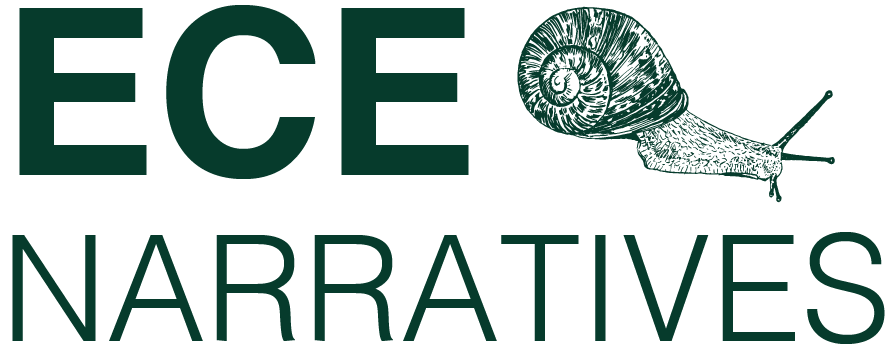
Christine Massing
Principal investigator
Faculty of Education, University of Regina
Dr. Christine Massing is Associate Professor and Chair of Early Childhood Education in the Faculty of Education at the University of Regina. Christine’s research primarily focuses on tensions between immigrant/refugee educators’ and families’ own culturally-constructed knowledges, beliefs, and values and the Western dominant discourse of early childhood. Working alongside immigrant and non-immigrant educators and families, her current SSHRC-funded participatory action research study is aimed at co-generating intercultural teaching and care practices. She is co-author of two books: Teacher Education in Diverse Settings: Making Space for Intersecting Worldviews and Learning to Teach Young Children: Theoretical Perspectives and Implications for Practice. As a classroom teacher, Christine taught internationally in Colombia, Japan, Mexico, Guatemala, and Egypt before returning to Canada to teach in two First Nations communities as well as for Edmonton Public Schools.
Land Acknowledgement
The University of Regina is situated on Treaty 4 lands with a presence in Treaty 6. These are the territories of the nêhiyawak, Anihšināpēk, Dakota, Lakota, and Nakoda, and the homeland of the Métis/Michif Nation. Today, these lands continue to be the shared Territory of many diverse peoples from near and far. The nêhiyawak originally referred to Regina as oskana kā-asastēki which literally means “The place where bones are piled up.” This is why Regina’s nickname is “Pile O’Bones” and this is the origin of the name of our current location in Wascana Park.

Patricia Lirette
Principal investigator
Early Learning and Child Care Program, MacEwan University
Patricia (Tricia) Lirette is an associate professor in the Bachelor of Early Childhood Curriculum Studies Program at MacEwan University in Edmonton, Alberta. She currently holds the position of Department Chair of Human Services and Early Learning. She is co- principle investigator on the research team, that is writing and developing Flight: Alberta’s Early Learning and Care Framework (flightframework.ca). Prior to joining the faculty at MacEwan, she was the executive director of a non-profit child care centre and was an educator in a variety of settings serving preschool and school age children and their families.
Land Acknowledgement
We acknowledge that the land on which we gather in Treaty Six Territory is the traditional gathering place for many Indigenous people. We honour and respect the history, languages, ceremonies and culture of the First Nations, Métis and Inuit who call this territory home.
The First People’s connection to the land teaches us about our inherent responsibility to protect and respect Mother Earth. With this acknowledgement, we honour the ancestors and children who have been buried here, missing and murdered Indigenous women and men, and the process of ongoing collective healing for all human beings. We are reminded that we are all treaty people and of the responsibility we have to one another.

Monica Lysack
Collaborator
Faculty of Applied Health and Community Studies, Sheridan College Institute of Technology and Advanced Learning
Monica Lysack is professor in the Bachelor of Early Childhood Leadership degree program at Sheridan College, Oakville, Ontario. Her post-secondary teaching experience began at Saskatchewan Polytechnic and as a sessional lecturer with the University of Regina and she worked with First Nations and Metis women in specialized ECE programs through the Regina Friendship Centre. Monica has developed and advocated for child care policy at federal and provincial levels for over three decades. Her involvement in politics influenced her research interests in the politics of pedagogy, child care policy and ECE students’ emerging professional identities. She was on the national steering committee for the OECD international review of ECEC in Canada (Starting Strong II). Monica served as a Special Policy Advisor to Hon. Minister Indira Naidoo-Harris, Ontario Minister Responsible for Early Years and Child Care and Minister of the Status of Women.
Land Acknowledgement
We respectfully acknowledge that Sheridan College is located on the Territorial Lands of the Mississaugas of the Credit First Nation, Anishinaabe Nation, Huron-Wendat and the Haudenosaunee Confederacy. We humbly acknowledge those who have come before us, those among us and those who have yet to come. As we work together, may we bring all our minds together as one and listen with good intent and speak with a good mind.
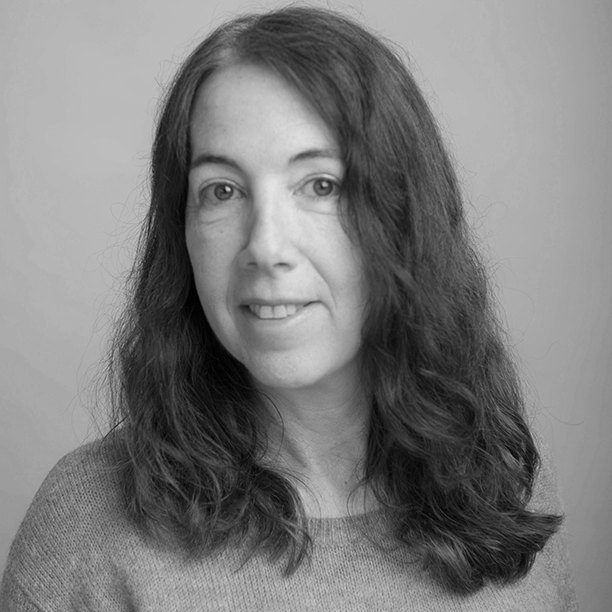
Iris Berger
Co-investigator
Faculty of Education, The University of British Columbia
Iris has been involved in the field of early childhood education as a classroom teacher, researcher, community organizer, policy consultant, and university lecturer since the mid 1990s. Her passion for early childhood education as a distinct and ever-engaging realm of/for research-pedagogy began when she worked with two, three and four-year-olds in the model classrooms at the UBC Child Study Centre under the auspices of the Faculty of Education. At the centre of her professional and academic inquiry lies the abiding notion that matters pertaining to education and childhood are entangled with question of ethics and politics. To this end, Dr. Berger has developed a special interest in rethinking leadership in early childhood education. This quest involves making the complexity of the pedagogical relations in the early years visible and contestable through practices such as pedagogical narration; challenging the taken-for-granted; and continuously engaging with questions such as ‘What is early childhood education for?’
Land Acknowledgement
Acknowledging with gratitude that UBC Campus is situated on the traditional, ancestral, unceded territory of the xʷməθkʷəy̓əm (Musqueam) First Nation.
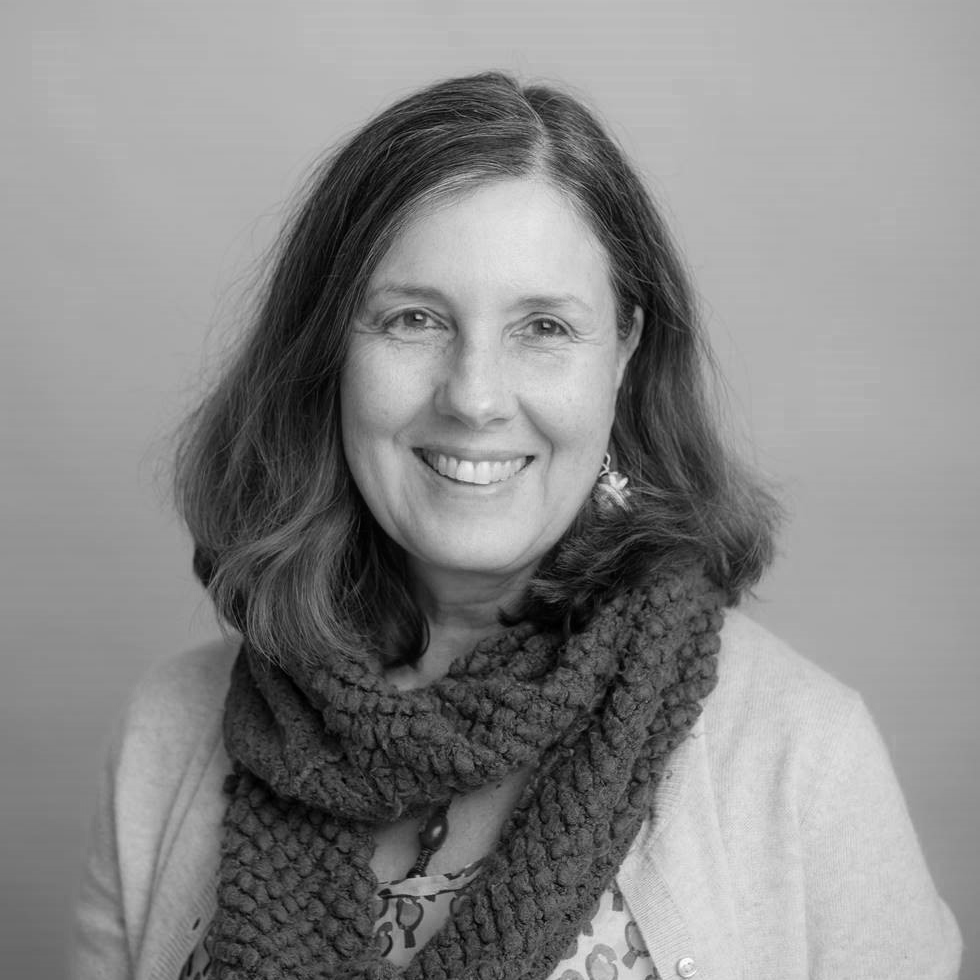
Mari Pighini
Collaborator
Faculty of Education, The University of British Columbia
Dr. Mari Pighini has been a sessional instructor and lecturer with the UBC faculty of Education since 1997 teaching courses in early childhood education, early intervention and special needs. Currently, Mari coordinates the online ECE cohorts for the Masters in Education (MED) program. Mari’s professional background combines a trajectory of over 25 years as a resource teacher and infant development consultant. Her research interests focus on the experiences of parents with children at-risk for developmental delays or disabilities receiving early intervention/child development support services in urban and rural settings in BC.
Land Acknowledgement
I acknowledge that I work, live and play in the occupied traditional, ancestral, unceded territory of the xʷməθkʷəy̓əm (Musqueam) First Nation. As an immigrant, I am grateful to be a guest in this land; as a Faculty member, I commit to support efforts to address the call for action from the Truth and Reconciliation Commission of Canada through my teaching and research work with early childhood educators.
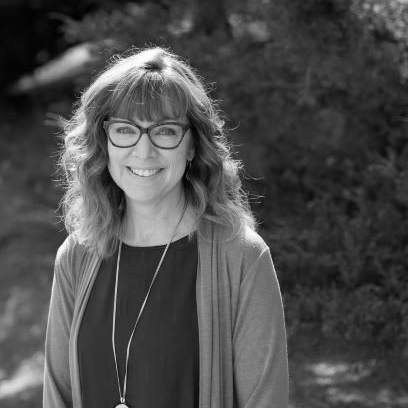
Laura Doan
Collaborator
Early Childhood Education Program, Thompson Rivers University
Dr. Laura K. Doan is an Associate Professor in the Faculty of Education and Social Work at Thompson Rivers University in Kamloops, BC, where she teaches in the Early Childhood Education and Master of Education programs. Laura recently completed a province-wide peer-mentoring project for early childhood educators, that took place in 17 regions across British Columbia, Canada.
Land Acknowledgement
Thompson Rivers University is located on the unceded and occupied lands of the Tk’emlups te Secwepemc within Secwepemc’ulucw, the traditional territory of the Secwepemc people.
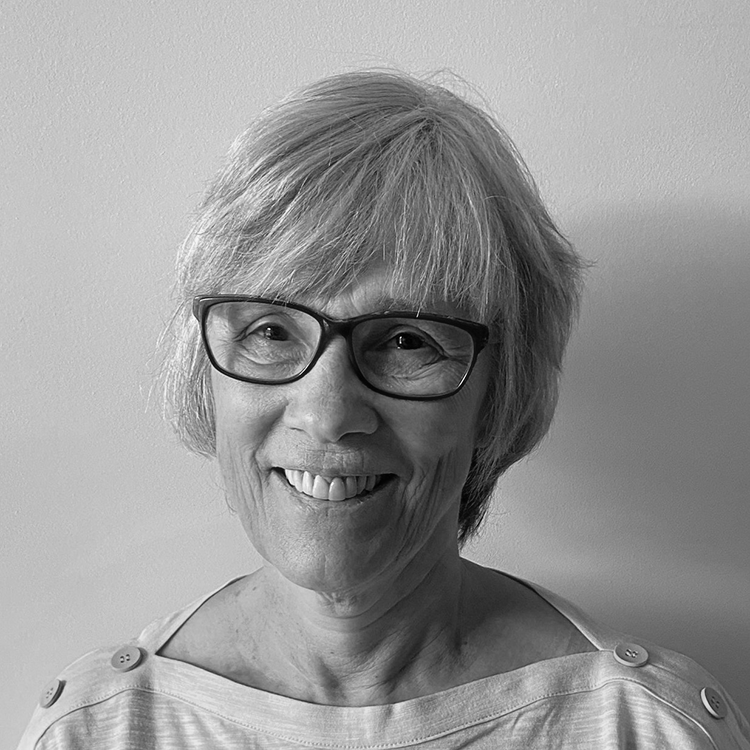
Jane Hewes
Co-investigator
Faculty of Education and Social Work, Thompson Rivers University
Jane Hewes is currently Associate Professor and Associate Dean in the Faculty of Education and Social Work at Thompson Rivers University in British Columbia. Prior to joining TRU, Jane served as Chair of Early Learning and Child Care at MacEwan University in Alberta for 15 years. In that role, she became deeply engaged in leading a team of researchers and early childhood educators in co-creating an early learning and child care curriculum framework for Alberta. In addition to early learning curriculum, Jane has published on play pedagogies, play environments, and professional learning in early childhood education. Jane is committed to community engaged scholarship and participatory research methodologies. She is looking forward to working with early childhood educators, researchers and policy makers across Canada on sketching narratives of movement and change in early childhood education and care.
Land Acknowledgement
The campuses of Thompson Rivers University are located on the traditional and unceded territory of the Secwepemc Nation within Secwepemcul’ecw. We respectfully acknowledge the Secwepemc—the peoples who have lived here for thousands of years and who today are a Nation of 17 Bands. As we share knowledge, teaching, learning and research within this university, we recognize that this territory has always been a place of teaching, learning and research.
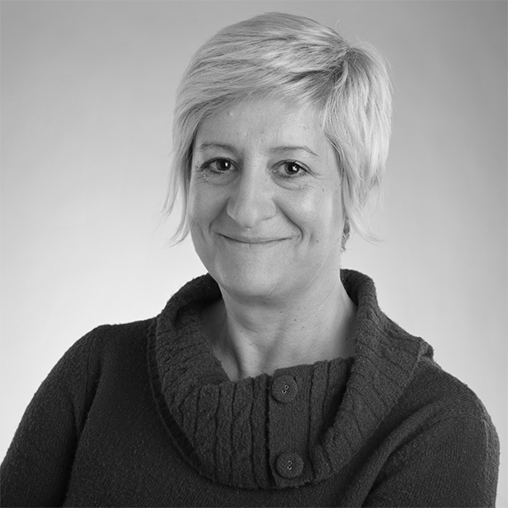
Nathalie Bigras
Collaborator
Didactique, Université du Québec à Montréal
Nathalie Bigras, Ph.D., has been a professor specializing in early childhood education in the Department of Didactics at the University of Quebec in Montreal (UQAM) since 2002. She holds a doctorate in psychology specializing on the study of the effect of educational child care on infant development. Previously, she was a college teacher in early childhood education techniques as well as a director and educator in ECE. She is particularly known for her work on the quality of ECE’s contexts, the means to be taken to promote the development of children in an educational context and access to childcare services for poor families. Her involvement in several studies and Quebec surveys on the quality, the needs of families, the preschool path of Montreal children and effective training methods, has contributed for 18 years to increasing the visibility of this field of study in Quebec. Nathalie Bigras regularly works with the ECE community as a speaker but is best known for her extensive research, publications and interventions in favor of early childhood. She has been the scientific director of the Équipe de recherche Qualité des contextes éducatifs de la petite enfance since 2009, several of whose members have contributed to developing with the MF the quality assessment process implemented in regulated childcare settings in Quebec. She works in close collaboration with ECE actors in order to generate reflections leading to a better understanding and recognition of the quality for the development of children in educational contexts during early childhood.
Land Acknowledgement
UQAM sits upon the unceded territory of the Kanien’kehá:ka. These lands and waters continue to serve as a site of meeting and exchange amongst nations. I recognize and respect the Kanien’kehá:ka as the custodians of the lands and waters on which we gather today.
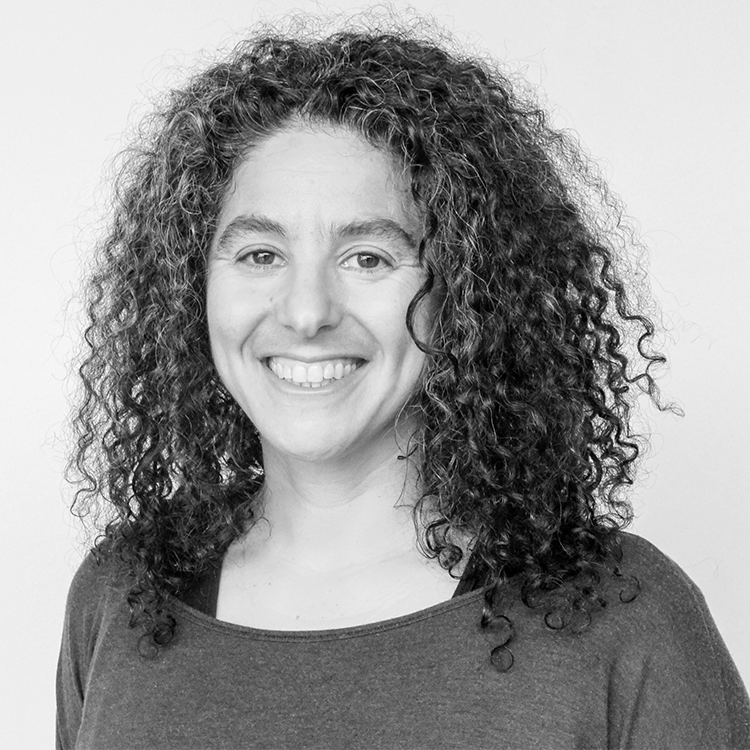
Joanne Lehrer
Co-investigator
Sciences de l’éducation, Université du Québec en Outaouais
Joanne Lehrer is Associate Professor in the department of Education at the University of Quebec in Outaouais. She has previous experience as a K-6 teacher, early years pedagogical consultant, curriculum writer, and college instructor. Her research explores the way that societal discourses shape early childhood educational practice, and how individuals (children, educators, teachers, parents) resist or conform to those discourses. She studies relationships with families; the transition to school; children’s perspectives; and professional identities using narrative research and institutional ethnography in order to co-construct meaning with her research participants. She is a member of the Quality of educational contexts for young children research team and past president of the Canadian Association for Research in Early Childhood.
Land Acknowledgement
Le département des sciences de l’éducation de l’Université du Québec en Outaouais reconnait que ses activités se tiennent sur des terres faisant partie des territoires non cédés de la nation Anishanaabe Omàmiwininiwak.
We are on the traditional unceded territory of the Anishanaabe Omàmiwininiwak.
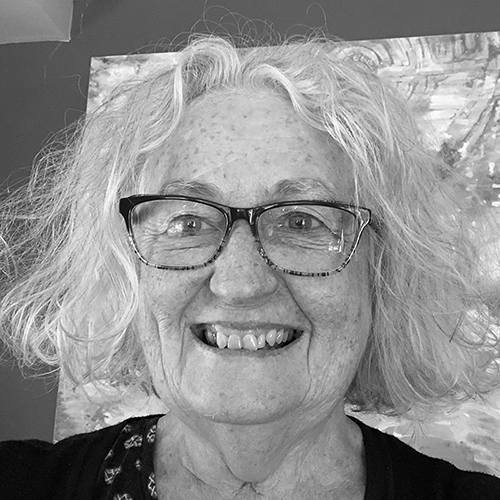
Pam Whitty
Co-investigator
Early Childhood Centre, University of New Brunswick
Pam Whitty lives on Wolastoqey territory in what is now called Fredericton, New Brunswick. She has been an early childhood educator for 45 years beginning in childcare, and followed by kindergarten, first grade, and special education. For the last 30 years, she has worked in the areas of Early Childhood and Critical Studies in the Faculty of Education at the University of New Brunswick. Some of her favourite projects include – working with Born to Read NB creating books for babies, co-creating the New Brunswick Early Learning and Child Care curriculum, and most recently beginning to gain an understanding of the depth of Mi’kmaq and Wolastoqey brilliance. What she loves about her work is the intergenerational and relational nature of teaching, the uniqueness of each person, and the power of learning with and from others – whether that be in a class, a project, or a conversation. Pam has co-led numerous province-wide community-based action curriculum and literacies research projects in Early Childhood, and co-authored the New Brunswick Child Care Task Force (2016). Currently she is working with colleagues in the SSHRC Snail Project: Sketching Narratives of Change in Early Childhood across Canada.
Land Acknowledgement
We respectfully acknowledge that the University of New Brunswick stands on the unsurrendered and unceded traditional Wolastoqey land. The lands of Wabanaki people are recognized in a series of Peace and Friendship Treaties to establish an ongoing relationship of peace, friendship and mutual respect between equal nations.
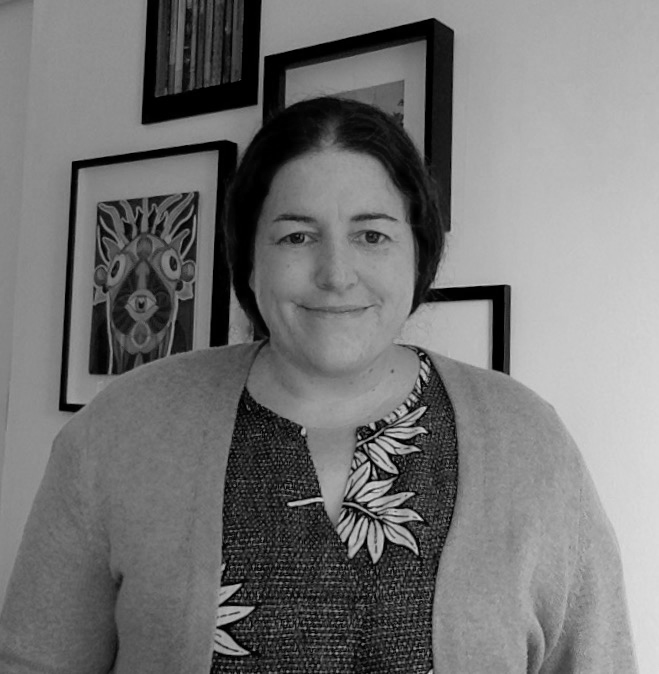
Emily Ashton
Collaborator
Faculty of Education, University of Regina
Emily is an Assistant Professor in the Faculty of Education at the University of Regina in the subject area of Early Childhood Education. She has recently completed her PhD studies at the University of Victoria. Her dissertation is titled “Anthropocene Childhoods: Speculative Child-Figures at the End of the World.” Emily situates her theoretical work in the interdisciplinary field of early childhood studies. As such, she is able to draw on speculative fiction, Black studies, Indigenous studies, and critical feminist theory to think through ideas related to children, childhoods, and futurities.
Land Acknowledgement
The University of Regina is situated on Treaty 4 lands with a presence in Treaty 6. These are the territories of the nêhiyawak, Anihšināpēk, Dakota, Lakota, and Nakoda, and the homeland of the Métis/Michif Nation. The University of Regina promotes the saying, “kahkiyaw kiwâhkômâkaninawak,” which translates from nêhiyawak as “all our relations.” Practised by many Indigenous communities in Turtle Island, this intention recognizes the interconnectedness of family and all their relations including those that walk on two feet, those that walk on four feet, those that swim in the great waters, those that fly in the sky and those that crawl on their bellies. This acknowledgement of the importance of community requires differential responsiveness and responsibility. As a settler on these lands, I have an ongoing obligation to live on this earth lightly and to call out ongoing complicities in settler colonialism and anti-Blackness loudly.

Patrick Lewis
Collaborator
Faculty of Education, University of Regina
Patrick Lewis studies and researches story, narrative identity, storytelling as teaching, and play based learning. He taught as a primary teacher for 20 years before joining the Faculty of Education at the University of Regina in 2004 where he is Professor of Early Childhood Education and Associate Dean. He has authored articles, book chapters, conference presentations, and books. His most recent work, Trauma Informed Teaching through Play Art Narrative is published by Brill/Sense and is co-authored with his spouse Karen Wallace.
Land Acknowledgement
I acknowledge that we are gathered on Treaty 4 land, the territory of the nêhiyawak, Anihšināpēk, Dakota, Lakota, and Nakota. It is also the homeland of the Métis/Michif Nation. Today there are many people who have come from around the world to live on these lands and we need to remember we are visitors here and we must work daily to reconcile our being here with the people of these lands.
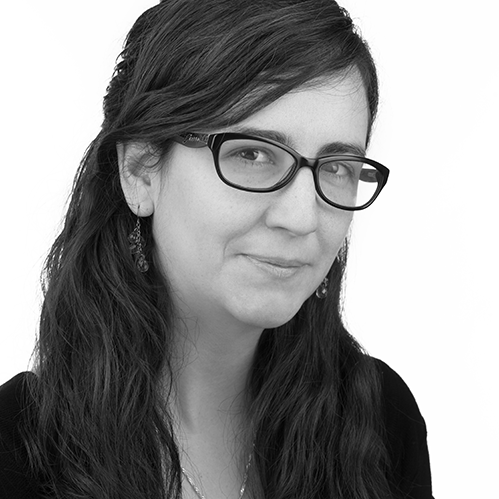
Alexandra Paquette
Research Assistant, Université du Québec à Montréal
Alexandra is a Masters student in ECE at UQAM under the supervision of Nathalie Bigras and Joanne Lehrer. Her project interest is how pedagogical advisors support their team of educators in the use of pedagogical documentation inspired by Reggio Emilia. She has been coordinating the Équipe de recherche Qualité des contextes éducatifs de la petite enfance since 2015. By the very nature of this function, she contributes to the deployment of a multitude of researches, communications and publications activities.
Land Acknowledgement
UQAM sits upon the unceded territory of the Kanien’kehá:ka. These lands and waters continue to serve as a site of meeting and exchange amongst nations. I recognize and respect the Kanien’kehá:ka as the custodians of the lands and waters on which we gather today.
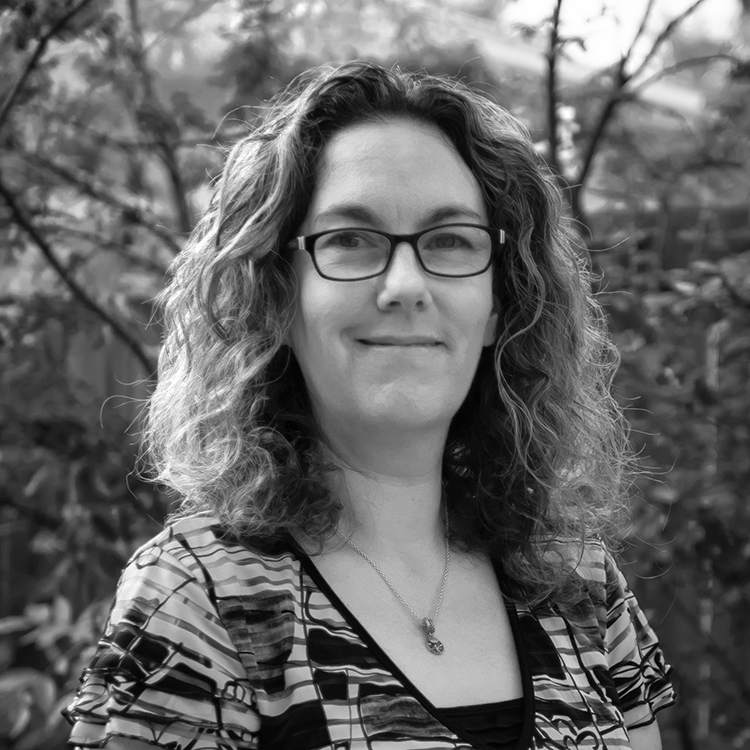
Esther Maeers
Esther Maeers is a PhD student in the faculty of Education at the University of Regina under the supervision of Dr. Christine Massing. Her interests are focused on early childhood education and parent engagement. She is research assistant for this project and is also working on a project with Dr. Debbie Pushor at the University of Saskatchewan which is focused on systemic parent engagement. Prior to beginning her doctoral studies, she was a Prekindergarten teacher with the Regina Public School division for over 12 years. As a teacher, Esther was drawn to the knowledge and the stories of lived experiences of the parents she worked closely with and how her young students thrived when their home and school were connected. Esther now ensures that parent engagement philosophy is embedded within the classes that she teaches at the university and also within her own research. Aside from being a student and an instructor, Esther is a mother to three wonderful children, Christina, Cohen and Caius and a grandmother to Jackson and Karter.
Land Acknowledgement
The University of Regina is situated on Treaty 4 lands with a presence in Treaty 6. These are the territories of the nêhiyawak, Anihšināpēk, Dakota, Lakota, and Nakoda, and the homeland of the Métis/Michif Nation. Today, these lands continue to be the shared Territory of many diverse peoples from near and far.
